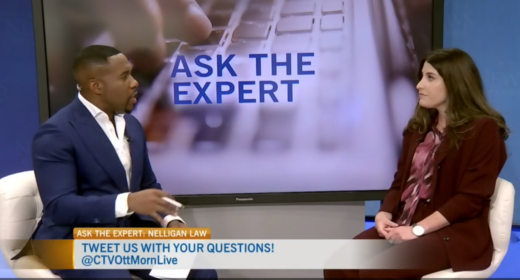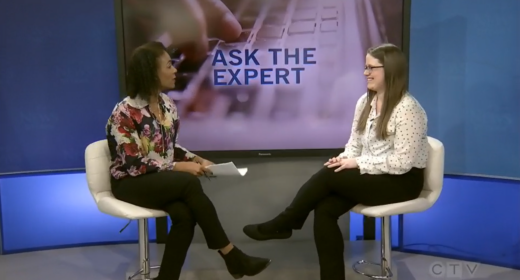Powers of attorney should be straightforward and useful documents. The problem lies, however, in the details of the document and the vagaries of human nature. The more complex and sometimes vague the document, the more issues can arise.
A power of attorney is a document created through the Ontario Substitute Decisions Act (SDA). There are two types of powers of attorney: a power of attorney for personal/health care; and a power of attorney for property. The latter is also called a continuing power of attorney for property or an enduring power of attorney.
Powers of attorney for personal care
Powers of attorney for personal care only become activated when the donor is assessed – by the doctor, hospital or care facility – as being incapable of making his or her own personal care decisions. If there is a written health-care power of attorney in existence, the persons set out in the power of attorney then make health-care decisions on behalf of the donor. Conflicts may arise if two or more health-care attorneys jointly appointed by a donor cannot agree on a health-care decision.
A health-care power of attorney might state that a majority of attorneys is all that is needed to make a decision. More often, a donor will allow one, or any one of several persons, the authority to make health-care decisions on behalf of a donor by employing the often-used phrase: jointly and severally. This seems to be accepted by care providers to mean "any one of", as well as all together. If there is a deadlock among several joint attorneys, or if no health-care power of attorney can agree, then medical decisions will be decided through the provisions of the Ontario Health Care Consent Act or by the Consent and Capacity Board of Ontario.
Competing health-care powers of attorney
In the case of nursing homes and other non-medical decisions, there may be a lack of a health-care power of attorney, a deadlock among several joint attorneys, or competing health-care powers of attorney made by the same donor. This could result in a dispute between attorneys, which may have to be resolved by a judge through an expensive Court Application.
Multiple powers of attorney for property
Most of the angst for attorneys, and the bulk of power of attorney litigation, is generated by multiple powers of attorney, multiple attorneys appointed by a donor to do the same thing, or deciding when a power of attorney should be activated.
The SDA allows a donor to make more than one power of attorney for property – all of which may be used at the same time. This very often occurs when a donor has signed a standardized power of attorney to allow an investment advisor or a bank official to transact a trade or an investment purchase on behalf of the donor, while the donor may also have, at the same time, signed a power of attorney for property for other normal financial/bill-paying purposes.
Not only does the SDA allow more than one power of attorney for property; in addition, unless specified in the document, a power of attorney is activated immediately upon being signed, regardless of the mental capacity or incapacity of the donor at that time.
I have seen situations where an attorney, in good faith, will make a financial decision for a donor, and the donor, perhaps in good faith or otherwise, will countermand that decision. Clearly this is an unworkable situation, and one which either has to be resolved by the donor and his or her attorney, or the attorney should resign.
Multiple powers of attorney with overlapping authority (such as having one power of attorney to deal with banking; another power of attorney to deal with operating a business; and a third power of attorney to oversee an investment portfolio) can become difficult to manage and ultimately unworkable. Assets are often moved around and fall, from time to time, under the jurisdiction of different attorneys at different times. Depending on the particular set of circumstances, it is better to have one power of attorney for all assets, or take particular care to clearly separate the jurisdiction and the assets of each of the attorneys.
A power of attorney appointing more than one person to act jointly and severally with one or more other persons can also lead to problems. Once again, one attorney may make a decision and only then have it countermanded by another attorney. Therefore, the donor must have confidence in their attorneys and assume this situation will not occur, or he or she should not create this kind of confusion in the initial power of attorney document.
Restrictive powers of attorney
While many donors are comfortable making powers of attorney, they are often not comfortable allowing an attorney to have the right to make decisions while the donor is still able to make them. Most commonly this situation is addressed by inserting a restriction in the power of attorney document that will allow the power of attorney to become activated once the donor is assessed or determined to be mentally incapable of managing his or her own financial affairs. This often works well, but it can lead to its own set of problems.
Depending on the precise wording in the power of attorney for property, there can sometimes be difficulty in obtaining necessary determination or assessment by the donor’s doctor of their mental incapacity to manage their own financial affairs. A more difficult problem sometimes arises in convincing the donor to see his or her doctor for the assessment.
Determination of mental incapacity to the level necessary to trigger the activation of a power of attorney depends to some degree on the medical practitioner involved. While some medical practitioners are willing to test the donor’s capacity/incapacity in their office, make the necessary determination, and thereby write the necessary letter confirming the level of the donor's incapacity, other medical practitioners will not perform this type of testing. In this case, a capacity assessment performed by an Ontario licensed capacity assessor is necessary. This is a relatively expensive undertaking which requires some level of cooperation by the donor.
A solution in this situation is to have the donor sign a power of attorney for property that remains active at all times, but with the donor leaving all copies of this document with the donor’s lawyer. Written instructions by the donor should be prepared to indicate that the power of attorney document can only be released upon written instructions from the donor, or following a letter from a medical practitioner stating the power of attorney can be or should be released to the attorney.
While powers of attorney can be considered simple documents to which donors pay little attention, they carry complex rights and responsibilities and require thought and discussion before being drafted and signed.
John Peart is a partner with the Ottawa law firm of Nelligan O'Brien Payne LLP (www nelligan.ca) and part of its Wills and Estates Group. John is certified as a specialist (CS) in Estates and Trusts Law by the Law Society of Upper Canada and is also a member of the International Society of Trust and Estates Practitioners.


